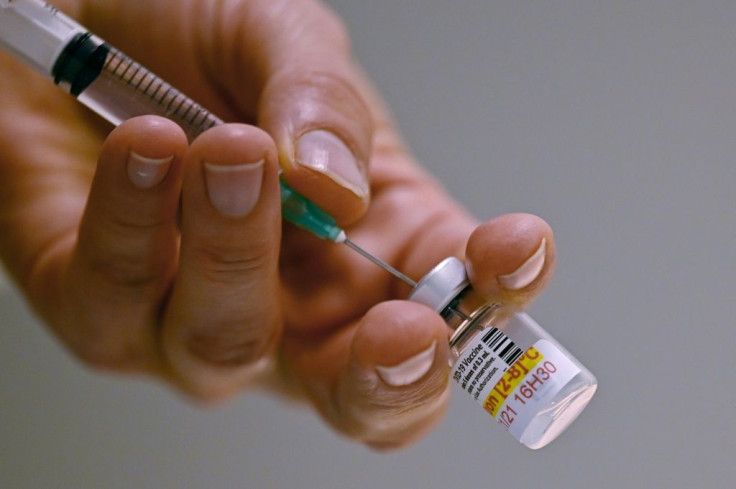UK Reels From Pandemic's Deadly Punch, But EU Demands AstraZeneca Shots From British Plants
KEY POINTS
- Production issues prevent AstraZeneca from delivering on promise
- EU said U.K. factories are part of the advanced purchase agreement
- AstraZeneca CEO said EU delayed signing the contract
Fears of a deeper recession induced by COVID-19 and a shortage of vaccine are threatening to test the delicate political ties between post-Brexit Europe and the United Kingdom. The European Union has piled pressure on AstraZeneca to meet its vaccine supply target from production in Britain, the fifth-most affected country.
The Cambridge-based drug manufacturer's warning that it would have to cut supplies to the European Union by more than half due to problems at a Belgian plant was met with disapproval from the bloc. EU insisted that it had a right to production from two British plants and planned a licence regime for exporting vaccine from the EU.
EU health commissioner Stella Kyriakides said Wednesday that U.K. factories are part of the advanced purchase agreement with AstraZeneca. "Two of the four factories from which AstraZeneca has committed to providing vaccines to the EU are in Britain," she said.
AstraZeneca has a contractual obligation to deliver 80 million doses to the EU by the end of March. The company is now expected to supply only 31 million doses.
The EU's vaccination drive has lagged the U.K., which remained the worst-hit in Europe with 25,308 COVID-19 cases reporting Wednesday alone.
AstraZeneca CEO Pascal Soriot told Italy's La Repubblica on Tuesday that they lagged production targets by two months and the EU's late decision to sign contracts had given limited time to iron out supply issues.
“We’ve also had teething issues like this in the U.K. supply chain. But, the U.K. contract was signed three months before the European vaccine deal. So with the U.K., we have had an extra three months to fix all the glitches we experienced,” he said. Soriot said the EU contract stressed on best-effort clause and did not commit the company to a specific timetable for deliveries.
Kyriakides rejected the logic of 'first-come-first-serve'. "That may work at the neighborhood butcher's but not in contracts, and not in our advanced purchase agreements."
"We signed an advanced purchase agreement for a product. We signed it precisely to ensure that the company builds a manufacturing capacity to produce the vaccine early so that they can deliver a certain volume of doses the day that it is authorized," she added.
Soriot said the vaccines meant for the EU were produced in four plants in Belgium, the Netherlands, Germany and Italy.
However, the EU claimed that the contract between them and AstraZeneca stipulates that the two main vaccine production factories in the U.K. are to be classed as primary manufacturing sites. EU claims their money went into upgrading the facilities in the UK and that they fully expected it to be operational for them.
The European Medicines Agency's approval for the AstraZeneca vaccine, developed in partnership with the Oxford University, is expected to come on Friday.
The EU, negotiating vaccine deals for 27 member countries, is hit by problems on multiple fronts. Pfizer said it was not able to supply the 12.5 million vaccines it promised the EU by the end of 2020, due to supply chain issues. Pfizer partner BioNTech suggested that negotiations with the EU were slow-paced.

© Copyright IBTimes 2024. All rights reserved.





















